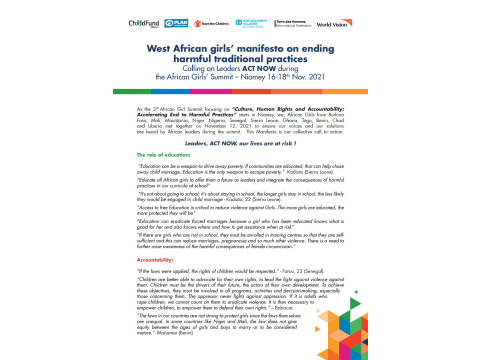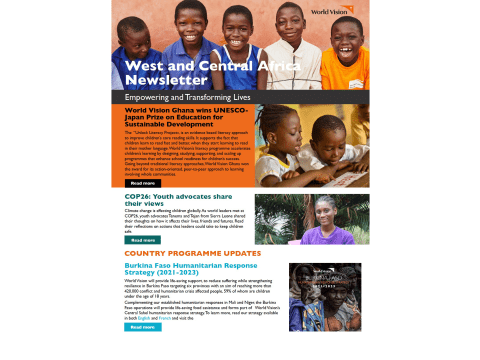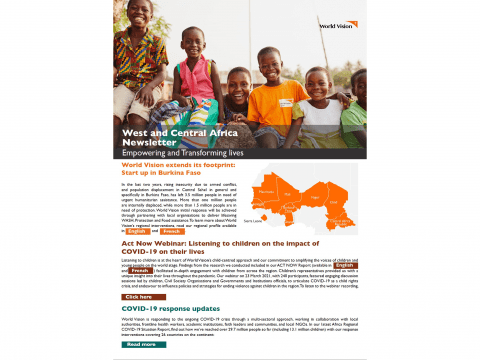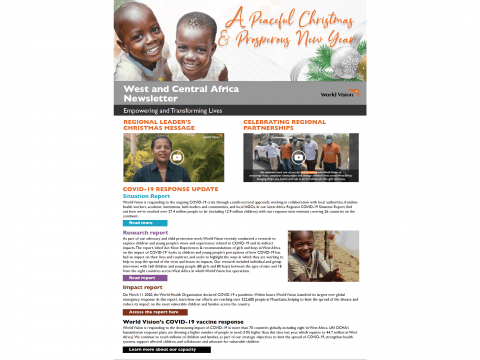Joining forces for zero tolerance for FGM in west and central Africa
Download
Several international conventions prohibit female genital mutilation (FGM) such as the Convention on the Elimination of All Forms of Discrimination Against Women (CEDAW), and the African Charter on Human and Peoples' Rights (Banjul Charter), among others. However, despite some progress in the area, a number of countries in West Africa still report high prevalence rates of FGM amongst women aged 15 to 49 years: Guinea 95%, Mali 89%, Sierra Leone 86%, Burkina Faso, 76%.
Recently, during the African Girls Summit held from 16 to 18 November 2021, the African Union gave an opportunity to girls to express their points of view on harmful traditional practices. FGM was the most important of all harmful practices.
The practice of FGM continues due to strong social and gender norms that lead parents to believe it is in the best interests of their daughters. In such contexts, having a law alone - even one that is effectively enforced - is not enough to eliminate this deeply rooted traditional practice. Strong law enforcement without efforts to promote social change is unlikely to have a positive effect and can even drive the practice underground. For laws to have a significant positive impact, they need to be widely understood, discussed and 'owned' by the people that are affected by them.
In this advocacy note, the Joining Forces coalition, an alliance of the six largest child-focused international NGOs (ChildFund Alliance, Plan International, Save the Children, SOS Children's Villages, Terre des Hommes, and World Vision), appeals to decision-makers to end harmful practices and secure the rights of every child.



